I Vitelloni (Italian pronunciation: ; lit. "The Bullocks") is a 1953 Italian comedy-drama directed by Federico Fellini from a screenplay by Fellini, Ennio Flaiano and Tullio Pinelli. The film launched the career of Alberto Sordi, one of post-war Italy's most significant and popular comedians, who stars with Franco Fabrizi and Franco Interlenghi in a story of five young Italian men at crucial turning points in their small town lives. Recognized as a pivotal work in the director's artistic evolution, the film has distinct autobiographical elements that mirror important societal changes in 1950s Italy. Recipient of both the Venice Film Festival Silver Lion in 1953, and an Academy Award nomination for Best Writing in 1958, the film's success restored Fellini's reputation after the commercial failure of The White Sheik (1952).
| I Vitelloni | |
|---|---|
Italian theatrical release poster | |
| Directed by | Federico Fellini |
| Produced by | Lorenzo Pegoraro Mario De Vecchi Jacques Bar |
| Screenplay by | Federico Fellini Ennio Flaiano Tullio Pinelli |
| Story by | Federico Fellini Tullio Pinelli |
| Starring | Alberto Sordi Franco Fabrizi Franco Interlenghi Leopoldo Trieste |
| Music by | Nino Rota |
| Cinematography | Carlo Carlini Otello Martelli Luciano Trasatti |
| Edited by | Rolando Benedetti |
| Distributed by | Janus Films |
Release date | 26 August 1953 (Venice) |
Running time | 103 minutes |
| Country | Italy |
| Language | Italian |
Screenplay
As summer draws to a close, a violent downpour interrupts a beach-side beauty pageant in a provincial town on the Adriatic coast. Sandra Rubini (Leonora Ruffo), elected "Miss Siren of 1953", suddenly grows upset and faints: rumours fly that she's expecting a baby by inveterate skirt chaser Fausto Moretti (Franco Fabrizi). Under pressure from Francesco (Jean Brochard), his respectable father, Fausto agrees to a shotgun wedding. After the sparsely attended middle-class ceremony, the newlyweds leave town on their honeymoon.
Unemployed and living off their parents, Fausto's twenty-something friends kill time shuffling from empty cafés to seedy pool halls to aimless walks across desolate windswept beaches. During the interim, they perform immature pranks. Taunting honest road workers from the safety of a luxury car they never earned, they're given a sound thrashing when it breaks down.
Moraldo Rubini (Franco Interlenghi), Sandra's brother and the youngest of the five vitelloni, uncomfortably observes Fausto's womanizing as he ponders his own existence, dreaming of ways to escape to the big city. Riccardo (Riccardo Fellini), the baritone, nourishes unrealistic ambitions to sing and act. Alberto (Alberto Sordi), the daydreamer, is supported by his mother and self-reliant sister, Olga (Claude Farell). Vulnerable and effeminate, he's unhappy that Olga is secretly dating a married man. Leopoldo (Leopoldo Trieste), the aspiring dramatist, writes a play that he discusses with Sergio Natali (Achille Majeroni), an eccentric stage actor he hopes will perform in it.
Back from his honeymoon and settled in with Sandra, Fausto is forced to accept a job as a stockroom assistant in a religious-articles shop owned by Michele Curti (Carlo Romano), a friend of his father-in-law's. Incorrigible, he pursues other women even in his wife's presence.
At the annual masquerade ball, Fausto is bedazzled by the mature beauty of Giulia Curti (Lída Baarová), his employer's wife. Alberto, in drag and half-drunk, executes a surrealistic dance across the ballroom floor with a goofy carnival head made of papier-mâché. Returning home at dawn, Alberto is devastated to find his sister running off for good with her married lover. Fausto's naive attempt to seduce Giulia results in his being humiliated and then fired by her husband. In revenge, he steals the statue of an angel in gold paint from his former employer, enlisting the loyal Moraldo to help him sell it to a monk. Suspicious, the monk turns down the offer. Fausto ends up giving the statue to a simple-minded peasant (Silvio Bagolini) who sets the angel on a mound outside his hovel, caressing it.
One evening after a variety show, Leopoldo agrees to accompany old Sergio for a walk along the seashore to discuss the merits of his play but when the actor propositions him, he takes to his heels in horror. Learning of Fausto's one-night stand with an actress, Sandra runs away from home, taking the baby with her. Riccardo, Alberto, Leopoldo, and Moraldo all join in Fausto's desperate search to retrieve his wife and child. When they find her at the home of Fausto's father, Francesco pulls off his belt in a rage and finally whips his son. Later Fausto and Sandra walk home happily, with optimism about their life together. Resolved to abandon the provincial monotony of his dead-end town, Moraldo boards the train for anyplace else (Rome), imagining his vitelloni friends sleeping their lives away.
- Franco Interlenghi as Moraldo Rubini
- Alberto Sordi as Alberto
- Franco Fabrizi as Fausto Moretti
- Leopoldo Trieste as Leopoldo Vannucci
- Riccardo Fellini as Riccardo
- Leonora Ruffo as Sandra Rubini, Moraldo's sister
- Jean Brochard as Francesco Moretti, Fausto's father
- Claude Farell as Olga, Alberto's sister
- Carlo Romano as Signore Michele Curti
- Lída Baarová as Signora Giulia Curti
- Enrico Viarisio as Signore Rubini, Moraldo's father
- Paola Borboni as Signora Rubini, Moraldo's mother
- Arlette Sauvage as mysterious woman at the cinema
- Silvio Bagolini as simple-minded peasant
- Vira Silenti as Gisella
- Achille Majeroni as Sergio Natali
- Maja Nipora as Caterina, the soubrette
Writing
Having completed an early version of La Strada with co-screenwriter Tullio Pinelli in 1952, Fellini offered their "modern fairy tale" to producer Luigi Rovere with whom he was still under contract. Rovere had solid reasons for turning it down: apart from the script of La Strada being an unrecognizable genre, Fellini's last film, The White Sheik, was a critical and commercial flop. In a show of soldarity, Rovere loaned the script to a Venetian professor of calligraphy turned film producer, Lorenzo Pegoraro, who had admired The White Sheik. Convinced that La Strada would never attract an audience, Pegoraro requested that Fellini develop a comedy instead. Biographers differ as to who conceived I Vitelloni. For Tullio Kezich, it was Fellini who hit on the idea "after an afternoon-long consultation" with Ennio Flaiano. For Hollis Alpert, it was Pinelli brain-storming with Fellini and Flaiano who came up "with a notion the other two liked: the pleasures and frustrations of growing up in a provincial town". Under Fellini's supervision, all three wrote the script rapidly, pooling together adolescent memories while inventing new ones.
Title
Distributors interested in the script demanded a title change: incomprehensible to a general audience, I vitelloni was a liability to an already risky venture. Fellini adamantly refused to change it, having chosen the film's title after "being called a vitellone by an elderly woman expressing disapproval of one of his pranks". For him, vitelloni were "the unemployed of the middle class, mother's pets. They shine during the holiday season, and waiting for it takes up the rest of the year". According to biographer Alpert, the term was Romagnol for "veal, or calf... used to refer to callow youths". Today, the term is widely translated as "big calves".
The actual origin of the term has been defined as a cross between the Italian words for veal (vitello) and beef (bovino) implying "an immature, lazy person without a clear identity or any notion of what to do with his life". In a 1971 letter, co-screenwriter Ennio Flaiano offered a fuller meaning of the word: "The term vitellone was used in my day to define a young man from a modest family, perhaps a student – but one who had either already gone beyond the programmed schedule for his coursework, or one who did nothing all the time... I believe the term is a corruption of the word vudellone, the large intestine, or a person who eats a lot. It was a way of describing the family son who only ate but never 'produced' – like an intestine, waiting to be filled."
Casting
Despite his reputation as box office poison, and against Pegoraro's express wishes, Fellini once again cast Alberto Sordi in a major role. Intent on playing the lead, however, Sordi didn't accept Fellini's offer until later in production. Pegoraro's skeptical distributors, far from closing the deal, demanded a clause in the contract banning Sordi's name from theatrical posters. To make matters worse, Fellini also cast Leopoldo Trieste (the lead in The White Sheik fiasco) as the budding dramatist, and his brother Riccardo, a total unknown, to interpret his own role. Further unknowns included Franco Interlenghi and Leonora Ruffo who had just wrapped on The Queen of Sheba. Although Czech actress Lída Baarová had a cult following, she was more famous for her love affair with Nazi Joseph Goebbels than for any of her film roles. Fellini topped things off by casting Franco Fabrizi as Fausto, an actor who began his film career in 1950 with Michelangelo Antonioni's Chronicle of a Love but bombed two years later in Christ Passed by the Barn. Pressured by his financial backers – a Florentine business group and the Paris-based Cité Film, Pegoraro finally balked at the lack of a star. "Sordi makes people run away," he complained to Fellini. "Leopoldo Trieste is a nobody. Meet me half way – bring in a name."
To placate him, Fellini contacted Vittorio De Sica, hoping to convince him to play the part of Sergio Natali, the aging ham actor. When Fellini outlined the homosexual overtones of the role, De Sica accepted provided it was written with "a great deal of humanity". In the end, he rejected the offer, "concerned about being marked as actually gay". Fellini then decided that De Sica would have been "too nice, too fascinating, too distracting" and cast Achille Majeroni, a respected stage actor, in the part.
Filming and editing
Described as an "itinerant production", shooting was tailored to accommodate Sordi's variety show schedule, requiring Fellini and his troupe to follow him from town to town across Italy. On tour in the Big Ruckus, Sordi rehearsed his role and was ready for filming during his hours off. Accordingly, when the actor toured Florence, shooting began as an all-night party at the city's Teatro Goldoni in early December 1952. Supervised by production manager Luigi Giacosi whom Fellini first met while on location in Tripoli during the war, and lensed by veteran cinematographer Otello Martelli, the rushes served as the basis of the masquerade ball, a major sequence. With a break in production for Christmas, shooting resumed on January 15, 1953. Constrained by the shoestring budget, many scenes were shot in a natural decor. In Ostia, a quay provided the winter setting for Fausto and his gang to wander around listlessly staring at the sea. In Fiumicino, the terrace of the Kursaal Hotel was the backdrop for the beauty pageant that opens the film. Accustomed to movies produced on promises, Giacosi maintained morale by ensuring that cast and crew dined in the best restaurants in the towns they visited.
Working with several cinematographers over a six-month period, Fellini developed a predominant camera style based on slow tracking shots that "match the listless, purposeless lives" of his characters. Zooms underscored dramatic events, most notably when Sandra falls ill at the beauty pageant, after the birth of her child, and when Francesco beats his wayward son.
With editor Rolando Benedetti, Fellini established a rhythm in which short sequences were separated by abrupt cuts while longer sequences used dissolves. The numerous brief and disparate episodes "governed by their own internal logic" were thus held together by a particular editing pattern. A freeze-frame was used to immobilize the young Guido, Moraldo's friend, at the end of the film when he balances himself on a railtrack.
Italy and France
Screened in competition at the 14th Venice International Film Festival on 26 August 1953, the film was awarded the Silver Lion by Italian poet Eugenio Montale who headed the jury, along with a public ovation and acclaim from the majority of critics. "Belying all doubts about its appeal", the film opened on September 17, 1953 to both commercial and critical success.
Reviewing for La Stampa, Mario Gromo argued that it was a "film of a certain importance because of its many intelligent moments, its sound portrayal of provincial life, and because it is the second film of a young director who evidently has considerable talent... The Italian film industry now has a new director and one who puts his own personal ideas before any of the customary traditions of the trade. Fellini's is a fresh approach". "It is the atmosphere that counts most in this unusual film," wrote Francesco Càallari of the Gazzetta del Lunedi, "an intensely human and poetical atmosphere altogether estranged from the provincialism of the setting... Fellini has something to say and he says i
Watch movie I Vitelloni online on Amazon
Watch movie I Vitelloni online
Watch The Movie On PrimePrem Deewane Full HD Movie Download
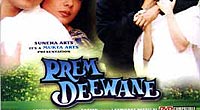
Luck By Chance Full HD Movie Download
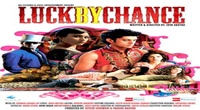
Dharmatma Full HD Movie Download
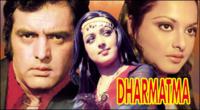
Meharbani (1982) Full HD Movie Download
.jpg)
Baat Ban Jaye Full HD Movie Download
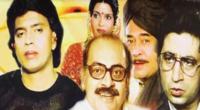
Michael Madana Kamarajan Full HD Movie Download

Maha Pawan Tirth Yatra (1975) Full HD Movie Download
.jpg)
Patita Full HD Movie Download
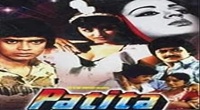
Daulat Ki Jung Full HD Movie Download
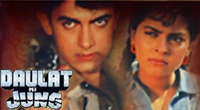
Haunted Full HD Movie Download

Tumsa Nahin Dekha (1957) Full HD Movie Download
.jpg)
New Delhi Full HD Movie Download
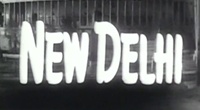
Aandhi Toofan (1985) Full HD Movie Download
.jpg)
Saajan (1969) Full HD Movie Download
.jpg)
Chikkadu Dorakadu Full HD Movie Download
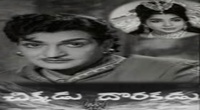
Harry Potter and the Goblet of Fire Full HD Movie Download

Shahid Bhagat Singh Full HD Movie Download

Kshana Kshanam Full HD Movie Download
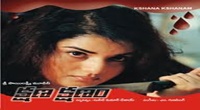
Maha Mantri Timmarusu Full HD Movie Download
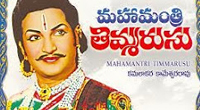
Alludu Kosam Full HD Movie Download
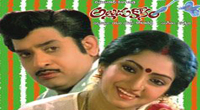
Saathiya Full HD Movie Download

Download latest Movie from bollywood
- 1> baaghi 3
- 2> THE SKY IS PINK MOVIE FULL STORY AND REVIEW
- 3> Luka Chuppi
- 4> TO ALL THE BOYS I’VE LOVED BEFORE
- 5> Kabir Singh
- 6> Street Dancer 3D
- 7> Simmba
- 8> Gone Girl
- 9> The Girl Who Lived
- 10> Ludo
- 11> DILWALE DULHANIA LE JAYENGE
- 12> GUILTY
- 13> The Godfather
- 14> Adventures of Rusty
- 15> Sooryavanshi
- 16> Satyameva Jayate 2
- 17> Thappad
- 18> Bhool Bhulaiyaa 2
- 19> KGFChapter 2
- 20> Mardaani 2
- 21> Pinjar
- 22> Shivaji maharaj
- 23> Ek Villian 2
- 24> Hungama 2
- 25> Divergent
- 26> Mumbai Saga
- 27> The Internship
- 28> HIT (telugu)
- 29> Panga
- 30> The perfect date
- 31> 16 December
- 32> Gopala Gopala (Telugu)
- 33> Brahmastra
- 34> Gangubai Kathiawadi
- 35> Manmadhudu
- 36> Nenu local
- 37> Mahanati
- 38> Shatamanam bavathi
- 39> Lagaan
- 40> After
- 41> MOM
- 42> Shamshera
- 43> Raguvaran BTech
- 44> Khakee
- 45> The villain
- 46> OM
- 47> Mr. perfect
- 48> Bueatifull mind
- 49> Hichki
- 50> Gabbar Singh
- 51> Jogi
- 52> Before Sunrise
- 53> Before Sunset
- 54> Before Midnight
- 55> The Big Bull
- 56> Top Gun: Maverick
- 57> The Purge
- 58> The Sky is Pink
- 59> Laxmmi Bomb
- 60> Sadak 2
- 61> Sufna
- 62> Prithviraj
- 63> PK
- 64> Coolie No 1(2020)
- 65> Black Widow
- 66> Dear Zindagi
- 67> Dil Bechara
- 68> PHIR HERA PHERI
- 69> WAR
- 70> Dostana
- 71> RRR: Roudram Ranam Rudhiram
- 72> Maidan
- 73> Dabbang 3
- 74> Chhalaang
- 75> life as we know it
- 76> SherShaah
- 77> Sandeep Aur Pinky Faraar
- 78> Event Horizon
- 79> 83
- 80> Radhe: Your Most Wanted Bhai
- 81> Gunjan Saxena: The Kargil Girl
- 82> Mr India
- 83> Vivah
- 84> Anokha Bandhan
- 85> Ghost
- 86> Bhoot: Part One - The Haunted Ship
- 87> Haseen Dilruba
- 88> Laal Singh Chaddha
- 89> Qismat
- 90> Rajput
- 91> Drive
- 92> Dil Chahta Hai
- 93> Dil Ki Baazi
- 94> Dil Ka Rishta
- 95> Teesri Manzil
- 96> Dil
- 97> Love Aaj Kal
- 98> Khaali Peeli
- 99> Bunty Aur Babli 2
- 100> Atrangi Re
- 101> Gulabo Sitabo
- 102> Jodi
- 103> Suraj Pe Mangal Bhari
- 104> Deewana
- 105> Attack
- 106> Sardar Udham Singh
- 107> Toofan
- 108> THE LOVEBIRDS
- 109> Jersey
- 110> Ginny Weds Sunny
- 111> Thalaivi
- 112> Shiddat
- 113> Angels vs Zombies
- 114> Koi Mil Gya
- 115> Thank God
- 116> Bhuj: The Pride of India
- 117> Hum Aapke Hain Kaun
- 118> The Platform
- 119> Bird Box
- 120> Roohi Afzana
- 121> Torbaaz
- 122> Nikamma
- 123> World War Z
- 124> Extraction
- 125> Train to Busan
- 126> Life of Pi
- 127> SHAADI MEIN JROOR AANA
- 128> Himmat Aur Mehnat
- 129> To All The Boys: P.S. I Still Love You
- 130> Mimi
- 131> Good Newwz
- 132> Shubh Mangal Zyada Saavdhan
- 133> Raabta
- 134> Harry Potter and the Philosopher's Stone
- 135> Harry Potter and the Chamber of Secrets
- 136> Chhapaak
- 137> War of the Worlds
- 138> Harry Potter and the Prisoner of Azkaban
- 139> Harry Potter and the Goblet of Fire
- 140> MURDER MYSTERY
- 141> Shakuntala Devi
- 142> Bachchan Pandey
- 143> Jayeshbhai Jordar
- 144> Sheer Qorma
- 145> Saina
- 146> 'O' Pushpa I hate tears
- 147> Kedarnath
- 148> MS Dhoni The Untold Story
- 149> Chhichhore
- 150> Badhaai Ho
- 151> Unstoppable
- 152> Oz the Great And Powerful
- 153> The Girl on the Train
- 154> Haathi Mere Saathi 2020
- 155> The Conjuring: The Devil Made Me Do It
- 156> Gandhi Se Pehle Gandhi
- 157> The Song of Scorpions
- 158> Srimanthudu
- 159> Hello Guru Prema Kosame
- 160> Beauty and The Beast
- 161> Black Panther
- 162> Charlie and the Chocolate Factory
- 163> Bole Chudiyan
- 164> Fidaa
- 165> Duvvada Jagannadham
- 166> Bruce Lee: The Fighter
- 167> Hyper
- 168> Yaara
- 169> Red (2020)
- 170> Shivam
- 171> That Is Mahalakshmi
- 172> Nishabdham
- 173> Aashram 2020 web series
- 174> Laxmii
- 175> Mismatched
- 176> STUDENT OF THE YEAR 2
- 177> NAIL POLISH
- 178> Ramprasad Ki Tehrvi
- 179> KAAGAZ
- 180> 12 o Clock
- 181> The Power
- 182> bolo hau
- 183> Tribhanga
- 184> JAMUN
- 185> Madam Chief Minister
- 186> Maasaab
- 187> Aadhaar
- 188> Tanhaji
- 189> Bhaagi 3
- 190> Bhootnath
- 191> MALANG
- 192> Jai Mummy Di
- 193> Haathi Mere Saathi 2021
- 194> Shakeela
- 195> Unpaused
- 196> Annayya
- 197> Vamsoddharakudu
- 198> Mrugaraju
- 199> Narasimha Naidu
- 200> Sankranti
- 201> Manasu Maata Vinadhu
- 202> Anjaane
- 203> Apaharan
- 204> Bachke Rehna Re Baba
- 205> Bewafaa
- 206> Roohi
- 207> Radhe
- 208> Zindagi Khoobsoorat Hai
- 209> Yeh Mohabbat Hai
- 210> Yeh Kya Ho Raha Hai?
- 211> The Tomorrow War
- 212> DehradunDiary
- 213> Meri Shaadi Karaoo
- 214> Matruu Ki Bijlee Ka Mandola
- 215> No One Killed Jesica
- 216> Aag Ka Goola
- 217> Eight Million Dollars
- 218> Three Hundred
- 219> Cats and Dog
- 220> Decoy
- 221> Gold Rush
- 222> You Have Got Mail
- 223> Final Destination three
- 224> Tofan
- 225> Jungle
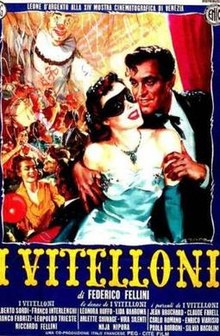 Story of movie I Vitelloni :
Story of movie I Vitelloni : 